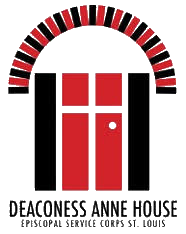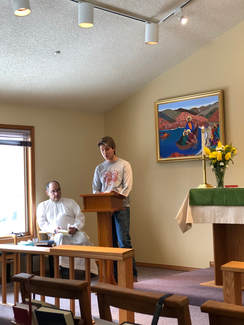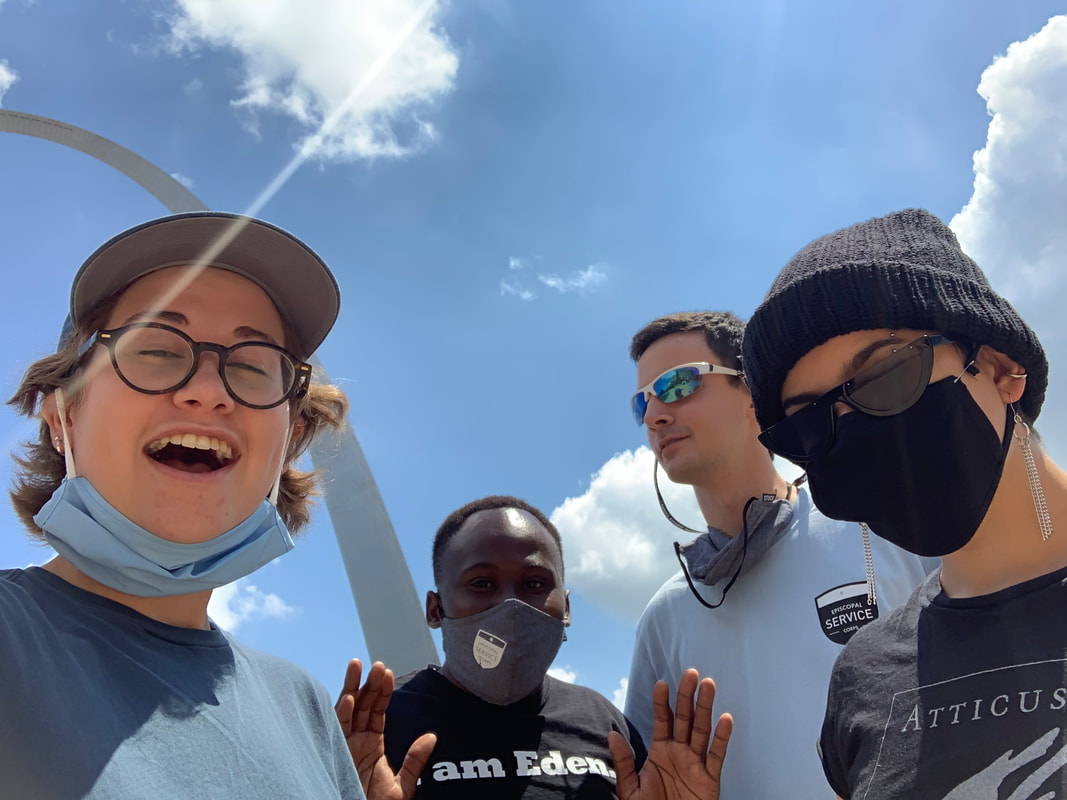|
Kevin preached on our retreat in Colorado! Read his awesome sermon below.
Lectionary Year B: 4th Sunday after Epiphany Scripture Covered:
Howdy! My name is Kevin Dean Rysted, and I am a member of the Episcopal Service Corps. I am currently living in community at the Deaconess Anne House in Old North, St. Louis, MO. Oklahoma is where I grew up and went to college. I have always been active in the Episcopal Church, but am comfortable that I also have desire to worship God beyond where the Episcopal Church is usually present. The Deuteronomy passage declares a promise: a leader, strong in the Word, will rise up amongst you to lead you. Not just does God promise that the people will be led by one of their own, but goes on to say that the leader’s fate is tied to the group. Where they suffer, the leader will not prosper; where they prosper, the leader will not suffer. It is sometimes tough to see this promise in verses 18-20. However, this commitment is extremely crucial to understanding the true form of “Obedience, or Fear of God,” that God demands of Israel. Specifically, understanding that this was said right before the coming of Joshua--a blessed conquering prophet that brought Israel (or at least most tribes) into their promised land. No longer (so they think) will they be ruled by oppressors or starve in a desert. Therefore, if Joshua’s prophecy was false, it would mean direct pain for entire groups of God’s people. Similarly, if the people denied Joshua’s prophecy it would mean taking more than their tribe’s portion or spoiling the promise to other tribes. One last note, I do not believe that this passage just predicts Joshua. Read the Psalm 111:5-6, 9: these lines further capture the sentiment I understand in the Hebrew 'Fear of God’ with another concrete, political-economic covenant. It is not just a promise to be kind to Israel, or to be merciful in some far-off, mystical future judgement. It is a contract of Equity for a group of generationally oppressed people trying to figure out how to rule with God. In the wake of the Babylonian empire being defeated, and the Jewish people’s return to Jerusalem, this psalmist wants to remind the people of how society works under the One True God. The 1 Corinthians passage is a staple in my view of Christian ethics, but I will instead turn to a transitory line that might not have been intended to be taken out of context. However, I think it is in good taste with the other parts of the passage: “”Knowledge” puffs up, but love builds up.” This idea fits so well into the sentiment expressed in authentic conversion experiences that I have heard testimony about. It is not 'knowledge’ of God that makes one believe, but a Grace filled Love that transcends something as fickle as 'knowledge’. It is not simply knowledge of someone’s story that builds relationship, but love. Finally, in our passage today from Mark, we get to see the rest of these passages through a lens. I want all of us to consider this passage in the shoes of a typical person in the synagogue. Jesus models for us the ideal for what living in Love and not Knowledge looks like! He goes into synagogue and teaches, however he's just some country hick from Nazareth (What good thing ever came from Nazareth?). How can he know so much? Don't we know the only story we need to know about those rebellious, troublesome northerners?! ….. Immediately thereafter, Jesus goes and does what I call “weird”. He casts out demons without invoking the power of exorcism he's using. It's not, “... In the name of Solomon” or “... In the name of Elijah” but just a pure command. This is novel stuff. To top it off, Jesus followed in the tradition of Galilean rabbis by disregarding the strict rules of Sabbath. There are so many instances in this story where we can now see the iconoclastic message Jesus is presenting: y'all have made God way too much about 'Knowledge’ by forgetting the point of the covenant. God saves us. Remember 'Fear of God’ = love of neighbor. Now that we have reviewed our wonderful readings for today, which are so full of amazing content and diverse application, let me pose a question for brief contemplation. What should society look like for God's people right here, right now, in real life--your life? ...repeat... *after a short silence…. In my life, this question has meant that: First: I imagine what I hope the society of God to look like, not in some paradise devoid of the traces of familiarity, but in this context and world. Second: How am I delaying or denying the Kindom? I look for groups that I might be ostracizing by action or apathy. I look for direct mechanisms that I take part in that cause harm. Finally: I need to seriously figure out how I feel God already moving. Are there any leaders already present, is there momentum to grab ahold of? So, what does this actually look like? I will provide my answer, not because I think that it is inherently valuable, but that it might be useful as an example. I imagine my neighbors in Old North having a deep sense of belonging in the Deaconess Anne House community. On cold days, we gather around the campfire or huddle against the radiators inside. We break bread together and talk about anything. We give thanks for all of Creation responsible for bringing this food to our table. We praise God for a life well lived, and ask God to stay with us through the rough. We work hand in hand to expand our familial bond to new people and groups, pushing our circle wider. This mutualism also goes on to increase the productivity of our projects, yielding more reclaimed gardens, more local business, and less empty homes. I am delaying this vision by failing to properly engage neighbors where they are at. Specifically, I do not go into the southern part of the neighborhood too often, and I don't meet too many people from outside of a few blocks. Also, my prioritization of other activities takes me away from the neighborhood: my church, my job, my gym, and my grocery are all not in the neighborhood. I have not engaged people at their homes who might have limited accessibility or who are new to the neighborhood. Yet, have a neighborhood organization that is already doing amazing things to build up this neighborhood. We have a fierce leader, Jessica, who is looking at what the people of the neighborhood actually want in the form of any development. We have made a few friends that might get us involved with networks already present. There are a handful of churches that I could join in prayer with. There is already a spectacular gardening system, putting people who have never seen the food they eat growing in the soil, with a permaculture design course instructor and Master gardeners alike. The local business scene is resilient despite harsh economics at times. There are wonderful community events in our public spaces. I am gracious that there is an Episcopal Service Corps communal home in that neighborhood; because I honestly would have never wandered into Old North, much less called it my home. Simply put, there is a whole lot of steps that God has already helped guide if I pray with my eyes wide open. So once again, I want to turn this back to you and to the Word. We should not let knowledge of what a place is like, or the people who live there, but rather let love build up our relationship with the place and the people. We should follow in Jesus’ refusal to get bogged down by institutions (well intentioned I might add) that deny or delay our love of neighbor. Finally, we should look for how Jesus, the great prophet from among us, is already working around us and in us. AMEN
0 Comments
Leave a Reply. |
Categories |
|
Mailing address:
DAH c/o Diocese of Missouri 1210 Locust St. Louis, MO 63103 |
(c) 2014 - 2020 Episcopal Diocese of Missouri
|



 RSS Feed
RSS Feed